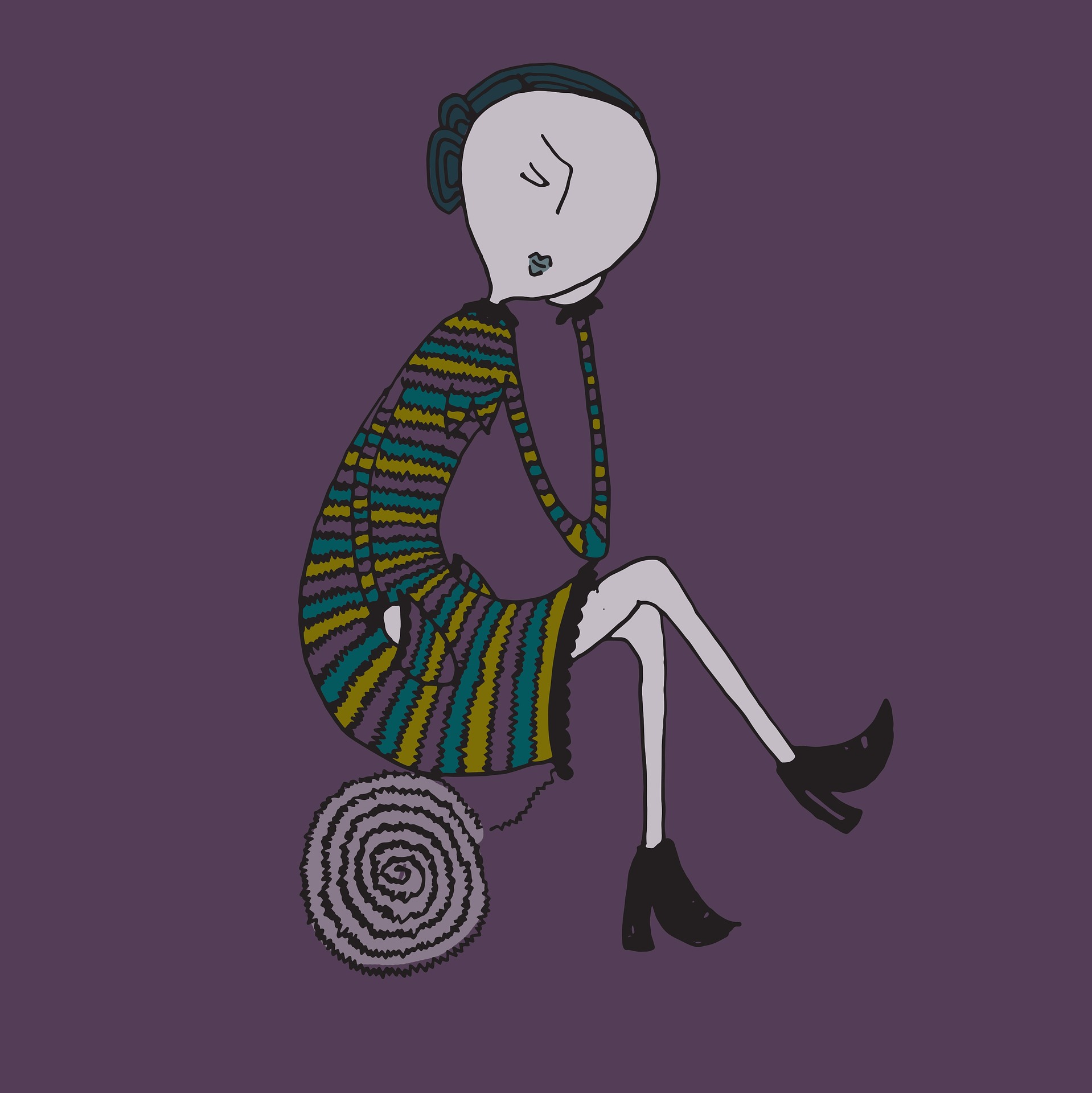Signs of Emotional Abuse for ADHD Women: Recognize and Protect Yourself
Are you a woman with ADHD who feels like something is off in your relationship, but you can't quite figure out what it is? Signs of Emotional abuse can be particularly hard to recognize, especially for ADHD women, who may already struggle with self-doubt, masking their true feelings, or managing complex emotions. While abuse is often thought of as physical, emotional abuse is just as harmful—and in some cases, even more common. If you’re wondering if you’re experiencing emotional abuse, this guide will help you recognize the signs and understand how to protect yourself.
Why ADHD Women Are Particularly Vulnerable to Emotional Abuse
Women with ADHD face unique challenges that can make them more susceptible to emotional abuse in relationships. Here’s why:
- Masking and People-Pleasing: Many ADHD women have learned to mask their true selves to fit in or avoid conflict, often from a young age. This behavior can continue into adulthood and relationships, where it may make them more vulnerable to partners who take advantage of their willingness to please or their difficulty asserting boundaries.
- Low Self-Esteem: ADHD women often struggle with self-esteem due to a lifetime of feeling different or being misunderstood. This can lead to an increased tolerance for unacceptable behavior in relationships, as they may feel they don’t deserve better or fear they won’t find another partner.
- Hyperfocus on Relationships: ADHD can sometimes cause hyperfocus, where an individual might become intensely focused on their partner and relationship. This can lead to a higher tolerance for abusive behavior or missing red flags because they are so invested in making the relationship work.
- Difficulty Recognizing Subtle Abuse: Emotional abuse is often subtle and can be hard to recognize, especially for ADHD women who might already question their perceptions due to a history of being misunderstood or gaslit about their ADHD traits.

What Are the Signs of Emotional Abuse?
Many ADHD women come into my office describing relationships filled with signs of emotional abuse. It's important to recognize that emotional abuse is not always obvious. Unlike physical abuse, emotional abuse is often more insidious, slowly eroding self-esteem and well-being over time. Emotional abuse involves behaviors or attitudes designed to control, subdue, punish, or isolate through humiliation or fear (Engel, 2002).
Key things to remember about emotional abuse:
- It is just as harmful as physical abuse.
- Research shows emotional abuse is a more common form of violence and is often perceived by survivors as more damaging than physical abuse.
- Emotional abuse can happen to anyone, regardless of gender, but ADHD women may be particularly at risk.
- Emotional abuse often precedes physical violence, serving as an early warning sign.
If you recognize these signs of emotional abuse, it’s crucial to understand that you may be in an abusive relationship.
Here’s what emotional abuse might look like:
Symptoms of Emotional Abuse for ADHD Women: Categories and Examples
Verbal Assaults
- Insults, put-downs, public embarrassments, or constant sarcasm may be more subtle forms of verbal abuse. ADHD women may be particularly sensitive to these kinds of verbal attacks, especially if they've spent a lifetime being criticized or misunderstood.
- If your partner frequently yells, calls you names, or speaks condescendingly, these actions are designed to strip away your self-esteem and confidence, which can be even more harmful for someone already navigating ADHD-related challenges.
Attempts at Dominance and Control
- Your partner might try to dominate your actions or decisions, often masking it as "caring" or "protecting" you. This might resonate particularly with ADHD women, who could interpret controlling behavior as guidance or support.
- Examples include monitoring your social media, checking your phone, or controlling your finances. ADHD women might find this particularly stressful, especially if they struggle with organization or managing finances on their own.
Isolation
- Social abuse includes isolating you from friends and family, either by threat, trickery, or persuasion. ADHD women may be more vulnerable to isolation if they already struggle with social anxiety or fear of rejection.
- An emotionally abusive partner may discourage you from seeing loved ones or guilt-trip you into spending all your time with them, taking advantage of the ADHD tendency to hyperfocus on close relationships.
Psychological Abuse (Gaslighting)
- Gaslighting involves convincing you that your perception of reality is wrong, which can be especially damaging for ADHD women who might already question their perceptions.
- This tactic can make you feel "crazy" or doubt your thoughts, making you more dependent on your partner for validation.
Economic Abuse
- Economic abuse occurs when your partner controls your access to money, forcing you to ask for financial support or dictating how money is spent. ADHD women might struggle more in these situations if they have challenges with financial planning or impulsivity.
- This form of abuse is about power and control, not finances, and can make ADHD women feel even more trapped if they already struggle with managing money.
Symbolic Violence and Property Damage
- Some physical behaviors are considered emotionally abusive even if they don’t involve direct physical harm. For ADHD women, who may already feel overwhelmed or struggle with emotional regulation, these actions can be particularly frightening and destabilizing.
- Examples include throwing objects, kicking walls, or destroying property to intimidate you (Engel, 2002).
Harm to Pets
- Abusing or threatening harm to pets can also be a form of emotional abuse, causing distress and fear. For ADHD women, who may form deep emotional bonds with their pets, this can be particularly devastating (Faver & Strand, 2007).
Recognizing Emotional Abuse in Your Relationship
Emotional abuse can be so subtle that you might not realize it until you are deeply involved in the relationship. For ADHD women, who might already experience heightened sensitivity or emotional dysregulation, recognizing emotional abuse can be even more challenging. Often, abusers will tell you that their hurtful behavior is "for your own good" or born out of "love." Remember, this is not your fault.
Signs of Emotional Abuse: 46 Red Flags in Your Partner's Behavior
- Has your partner called you names or criticized you regularly, leaving you questioning your worth?
- Have they tried to keep you from seeing your friends or family, especially those who understand your ADHD and support you?
- Do they give you angry or threatening glares that make you anxious or fearful?
- Have they prevented you from accessing money, especially if you have challenges managing finances on your own due to ADHD?
- Have they made you feel guilty for wanting to spend time with others or for not doing things their way?
Signs in Yourself That You May Have an Emotionally Abusive Partner
- Are you constantly afraid of your partner's reaction, feeling like you are walking on eggshells, especially when managing ADHD symptoms?
- Do you hide things from your partner that you shouldn’t have to, like spending time on hobbies or with friends who understand ADHD?
- Have you started to believe the negative things your partner says about you, impacting your already fragile self-esteem?
- Do you feel ashamed, worthless, or like you can’t do anything right, especially in areas where ADHD impacts your daily life?
Understanding the Impact of Emotional Abuse on ADHD Women
Emotional abuse isn’t limited to romantic relationships. Many ADHD women who experience emotional abuse in childhood may carry those patterns into adult relationships. It’s important to remember that love does not include behaviors that are humiliating or based on fear.
Next Steps: Protecting Yourself
If you recognize these signs of emotional abuse in your relationship, know that help is available. Consider reaching out to a trusted friend, therapist, or support group who understands ADHD and can provide a safe space to discuss your feelings and experiences. Remember, you deserve to feel safe and respected in all your relationships.
Important Note: If you are experiencing any form of domestic violence, please call a domestic violence hotline to speak with someone anonymously. They can provide you with specific information and resources to help keep you safe. Your safety is the most important thing, and there are people ready to help.
- Phone Number: 1-800-799-SAFE (7233)
- Website: www.thehotline.org
- Text: Text "START" to 88788
- Availability: 24/7, 365 days a year
- Languages: Services are available in over 200 languages through interpreter services.
Conclusion
Symptoms of emotional abuse can be hard to recognize, especially for ADHD women who may already question their perceptions. But understanding these signs is the first step in protecting yourself. If you think you might be in an emotionally abusive relationship, trust your instincts and reach out for support. Remember, you deserve to be in a relationship that is loving, respectful, and safe.
Learn more about your relationship and whether it's abusive
Learn more about adhd and emotional abuse research
References
- Becker, S. P., Luebbe, A. M., & Langberg, J. M. (2013). Co-occurring mental health problems and peer functioning among youth with attention-deficit/hyperactivity disorder: A review and recommendations for future research. Clinical Child and Family Psychology Review, 15(4), 279–302.
- Biederman, J., Spencer, T., & Monuteaux, M. C. (2008). Does stimulant therapy of attention-deficit/hyperactivity disorder beget later substance abuse? A meta-analytic review of the literature. Pediatrics, 121(1), e180-e187.
- Bridgett, D. J., Valentino, K., & Hayden, L. C. (2015). The contribution of children's emotional regulation and negative affectivity to associations between maternal parenting and children's adjustment. Journal of Family Psychology, 27(3), 433–442.
- Bussing, R., Zima, B. T., Gary, F. A., & Garvan, C. W. (2003). Barriers to detection, help-seeking, and service use for children with ADHD symptoms. The Journal of Behavioral Health Services & Research, 30(2), 176–189.
- Chronis-Tuscano, A., Wang, C. H., Woods, K. E., Strickland, J., & Stein, M. A. (2013). Parent ADHD symptoms and related family functioning: A meta-analysis. Journal of Abnormal Child Psychology, 42(7), 1165–1178.
- Ford, J. D., Racusin, R., Ellis, C. G., Daviss, W. B., Reiser, J., Fleischer, A., & Thomas, J. (2018). Child maltreatment, other trauma exposure, and posttraumatic symptomatology among children with oppositional defiant and attention-deficit/hyperactivity disorders. Child Maltreatment, 5(3), 205–217.
- Fuller-Thomson, E., Lewis, D. A., & Agbeyaka, S. K. (2016). Attention-deficit/hyperactivity disorder casts a long shadow: Findings from a population-based study of adult women with self-reported ADHD. Child Abuse & Neglect, 58, 125–136.
- Humphreys, K. L., Kircanski, K., Colich, N. L., & Gotlib, I. H. (2019). Attentional avoidance of emotionally negative stimuli predicts changes in depression symptoms in adolescent girls. Journal of Abnormal Child Psychology, 47(5), 857–867.
- Krieger, M. K., Leibenluft, E., Stringaris, A., & Pine, D. S. (2020). Emotion regulation in children and adolescents with psychopathology: A transdiagnostic approach. Psychological Medicine, 50(9), 1423–1427.
- Lifford, K. J., Harold, G. T., & Thapar, A. (2009). Parent-child hostility and child ADHD symptoms: A genetically sensitive and longitudinal analysis. Journal of Child Psychology and Psychiatry, 50(12), 1468–1476.
- Manfro, A. G., Salvador, M. S., & Kieling, C. (2018). Childhood maltreatment and conduct disorder: Is there a moderating role of anger expression? Child Abuse & Neglect, 79, 226–235.
- Martel, M. M., Gremillion, M. L., & Tackett, J. L. (2017). Personality traits and attention-deficit hyperactivity disorder (ADHD): An exploration of child personality traits and the ADHD construct. Child Psychiatry & Human Development, 48(2), 270–277.
- Ramsay, J. R., & Rostain, A. L. (2016). CBT for adult ADHD: An integrative psychosocial and medical approach. Journal of Cognitive Psychotherapy, 30(4), 222–234.
- Spencer, T. J., Faraone, S. V., Surman, C. B., & Biederman, J. (2014). Toward defining the neurobiology of attention-deficit/hyperactivity disorder: The role of dopamine transporters. Biological Psychiatry, 57(11), 1295–1300.
This summary provides a broad overview of what is currently known about emotional abuse in individuals with ADHD, incorporating findings from various studies. Please let me know if you need further details on specific studies or additional research areas.
Medical information obtained from this website is not intended as a substitute for professional care. If you have or suspect you have a problem, you should consult a healthcare provider.



